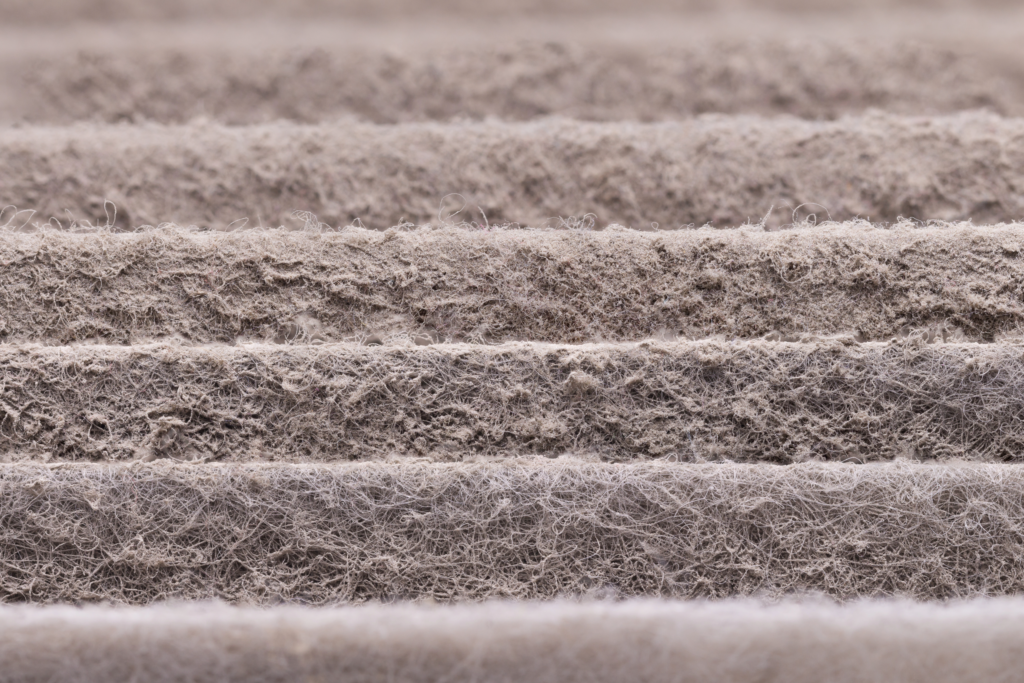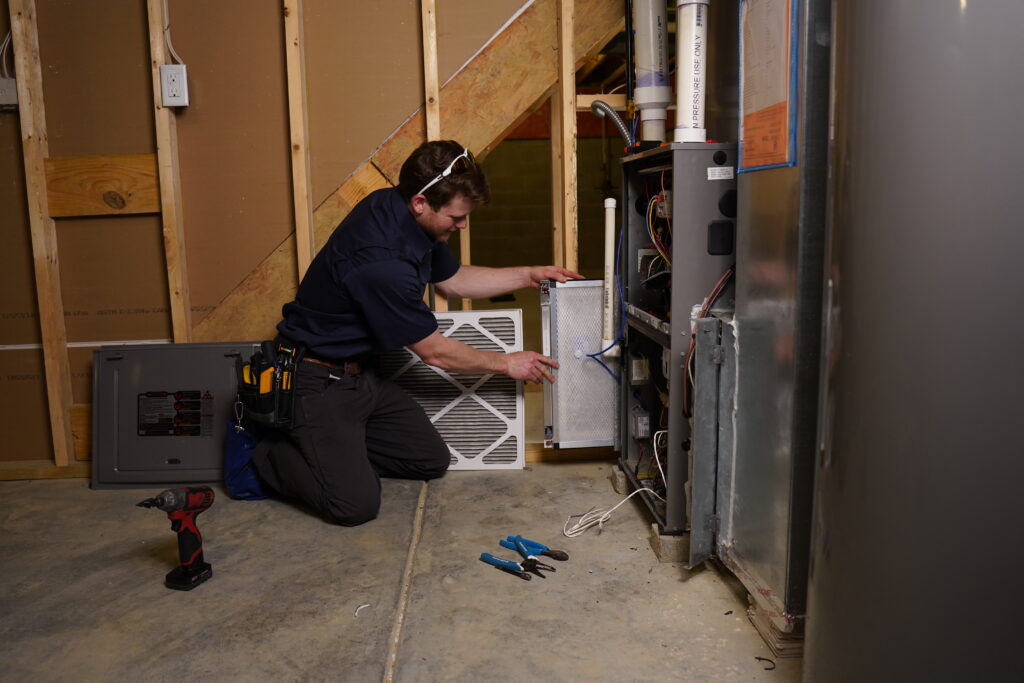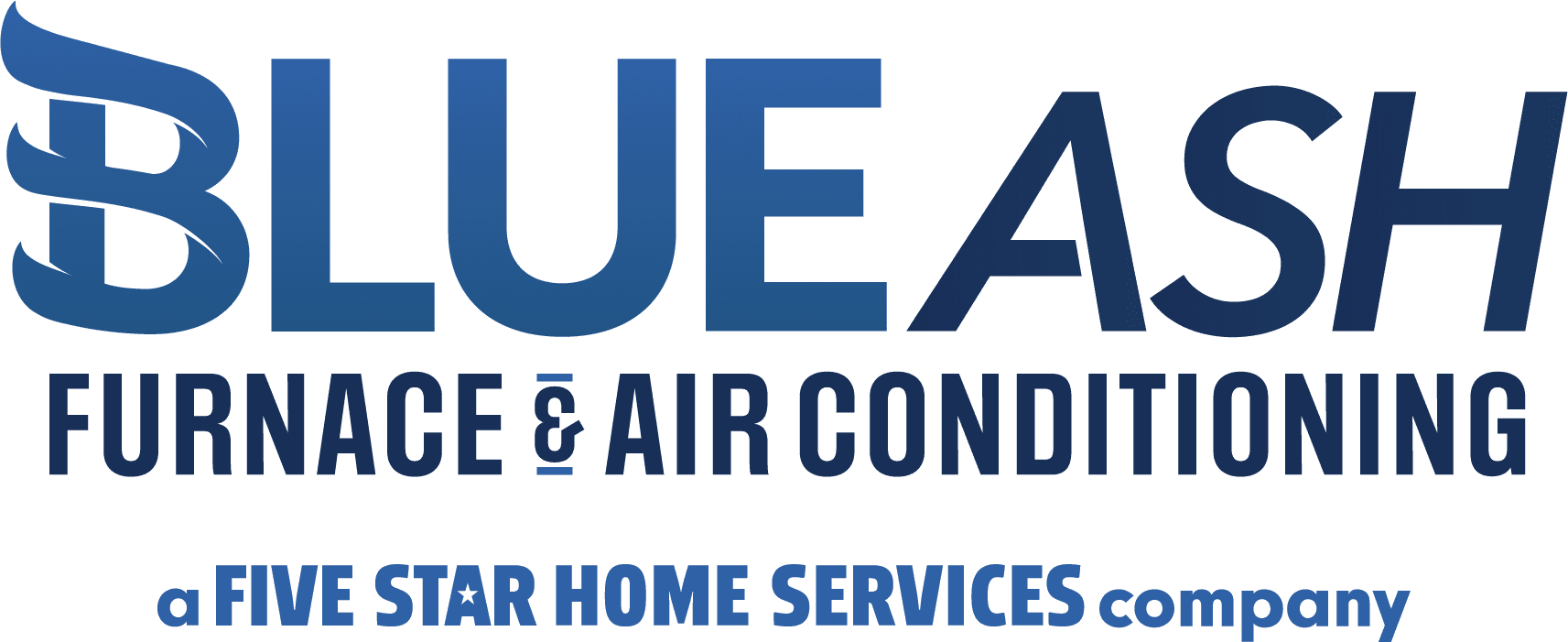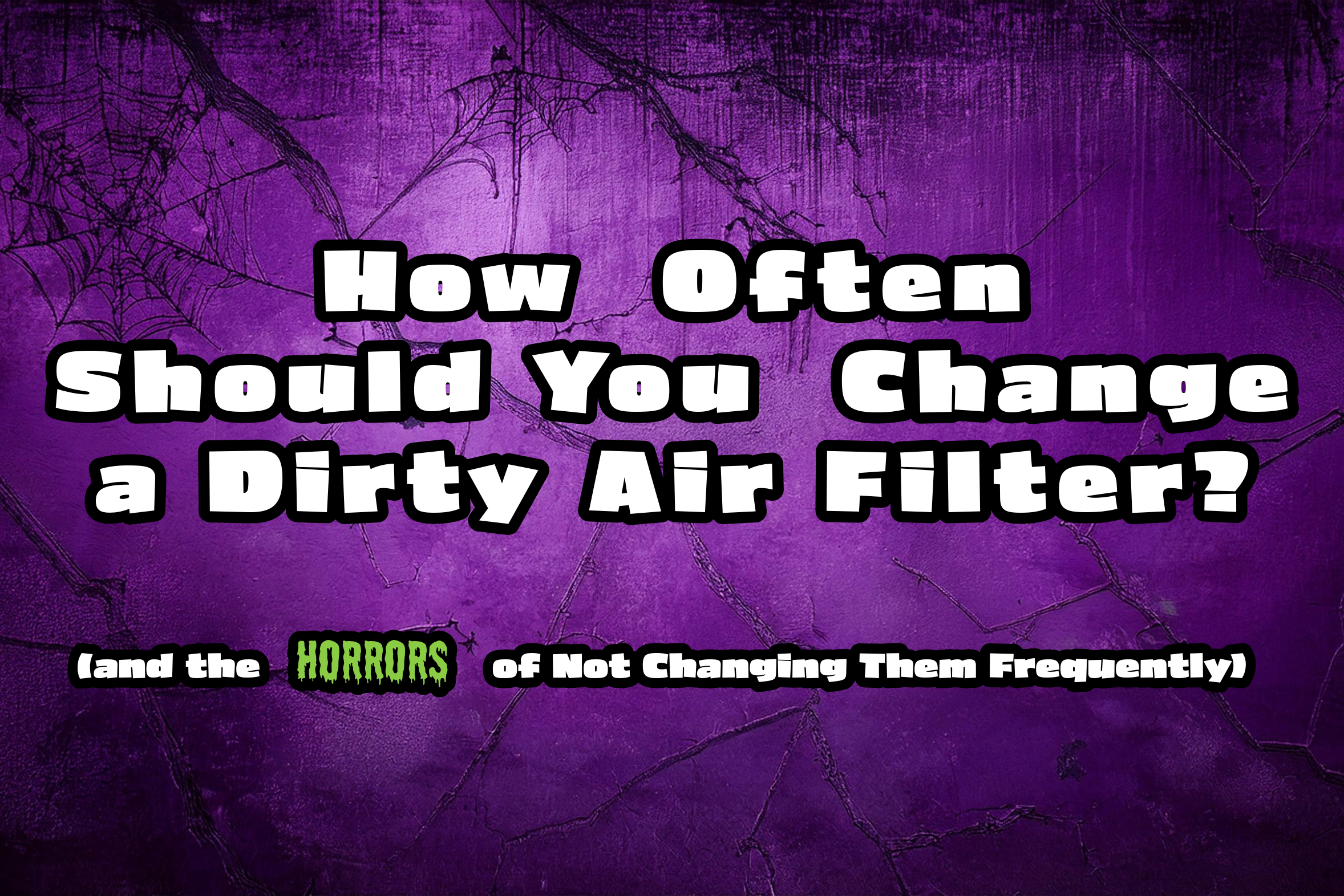Imagine entering your home in the middle of a fall and suddenly experiencing sneezing, coughing, and watery eyes. While it may seem like just seasonal allergies, the real issue could be much closer than you realize—a clogged air filter in your HVAC system.
Now, we know that it may not seem like a significant issue at first, but a clogged air filter can severely impact your home’s indoor air quality (IAQ) and overall health, as well as the health of your HVAC system. Today, Blue Ash Furnace & Air Conditioning aims to highlight the serious consequences of neglecting air filter maintenance and explain why it is crucial for every Ohio homeowner to pay attention to their air filters to prevent potentially troubling HVAC scares.

What Do Clogged Air Filters Negatively Effect?
- Reduced Air Quality – A clogged air filter can hamper your HVAC system’s ability to effectively filter out airborne contaminants such as dust, pollen, and germs. This deterioration in indoor air quality can worsen respiratory conditions like asthma and allergies. For homeowners in Ohio, where seasonal changes introduce various allergens, prioritizing high indoor air quality (IAQ) is essential.
- Increased Energy Bills – When your HVAC system struggles to push air through a clogged filter, it consumes more energy. According to a study by the Department of Energy, replacing a dirty, clogged filter with a clean one can reduce your air conditioner’s energy consumption by 5% to 15%. Given Ohio’s variable weather conditions, your HVAC system is already working hard; avoid making it work even harder.
- System Breakdown – Overlooking your air filter can result in more than just diminished air quality and elevated energy bills. The additional strain on your HVAC system over time can lead to complete breakdowns, resulting in costly repairs or even the need for a full system replacement. For Ohio homeowners, where HVAC systems represent a significant investment, regular maintenance can yield substantial long-term savings.
What Do Clogged Air Filters Result in?
- Pollutants and Contaminants – A clogged air filter permits harmful pollutants and contaminants to circulate freely throughout your home. These may include mold spores, pet dander, and tobacco smoke particles. Such contaminants can lead to various health issues, ranging from minor irritations like sore throats to more serious conditions such as respiratory infections.
- Dust and Debris Build-up – One immediate and adverse effect of a clogged air filter is the accumulation of dust and debris within your home. You may observe that your furniture collects dust at a quicker rate, and your HVAC vents might start to gather a noticeable layer of dust. This not only detracts from your home’s cleanliness but also results in the constant inhalation of these particles.
- Germs and Bacteria – A less apparent yet equally concerning consequence of a clogged air filter is the proliferation of germs and bacteria. A dirty filter can serve as a breeding ground for harmful microorganisms, which may then be distributed throughout your home. This situation can be particularly uncomfortable for individuals with preexisting asthmatic or respiratory conditions.
What Signs Should You Look Out for that Your Air Filters Are Clogged?
- Increased Allergy Symptoms – If you or your family members are experiencing heightened allergy symptoms despite medication, it may be prudent to inspect your air filter. Look for signs such as sneezing, coughing, and itchy eyes, as these can be exacerbated by subpar indoor air quality.
- Unpleasant Odors – A clogged air filter can lead to the circulation of undesirable odors in your home. These odors can vary from musty to more intense, depending on the contaminants trapped within the filter.
- Elevated Utility Bills – If you have observed an unexpected increase in your utility bills without changes to your HVAC usage, a clogged air filter may be responsible. The system must work harder, resulting in greater energy consumption and increased costs.
How Often Should You Change Your Air Filters?
- Seasonal Changes – In Ohio, where the seasons can be quite extreme, it is advisable to check your air filter at the start of each season. This practice ensures that your HVAC system is well-equipped to handle the varying demands throughout the year. If you prefer not to follow a seasonal schedule, we generally recommend that homeowners replace their air filters every 30-90 days, depending on usage and lifestyle factors.
- After Renovations – Furthermore, if you have recently completed any home renovations, it is prudent to replace your air filter. This is because home improvement projects can release significant amounts of dust and debris into the air, which can quickly clog your filter.
- Pet Owners – For households with pets, it is vital to change your air filter more frequently. Pet dander and fur can accumulate in an air filter much faster than normal, negatively impacting your home’s indoor air quality (IAQ).

The significance of a clean air filter in preserving your HVAC system and ensuring optimal indoor air quality is paramount. For homeowners in Ohio, where seasonal variations can significantly impact air quality, routine maintenance is crucial. By recognizing the signs of a clogged air filter and understanding how to replace it, you can maintain a comfortable home environment and promote the health of your family.
Take proactive steps to ensure your air filter maintenance is included in your regular home care routine. By following these tips, you’ll be well-prepared to address any air filter issues that may arise—there are no hidden tricks here, just good homeowner tips! What a treat!
Blue Ash Furnace & Air Conditioning can help you tackle any HVAC scare that dares to come your way! Call today at (513) 216-5664, or schedule an appointment online now by clicking here!






